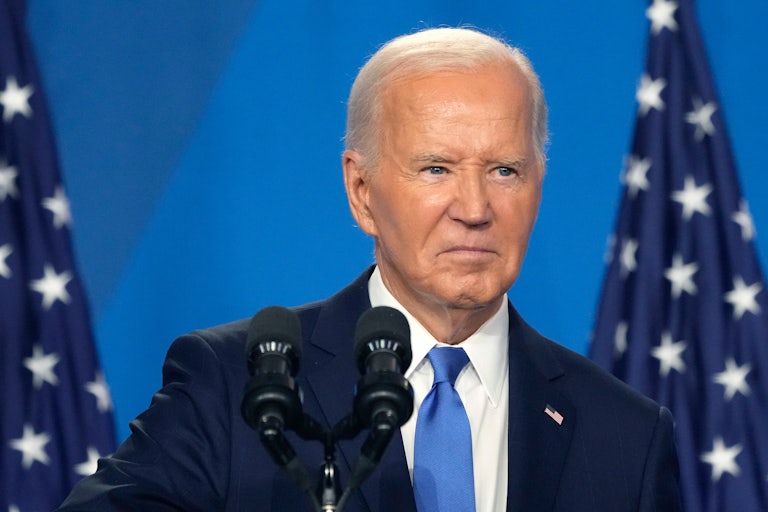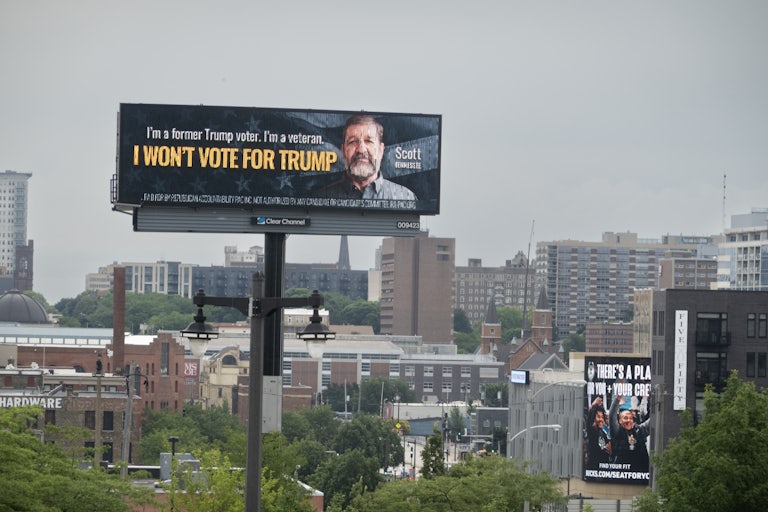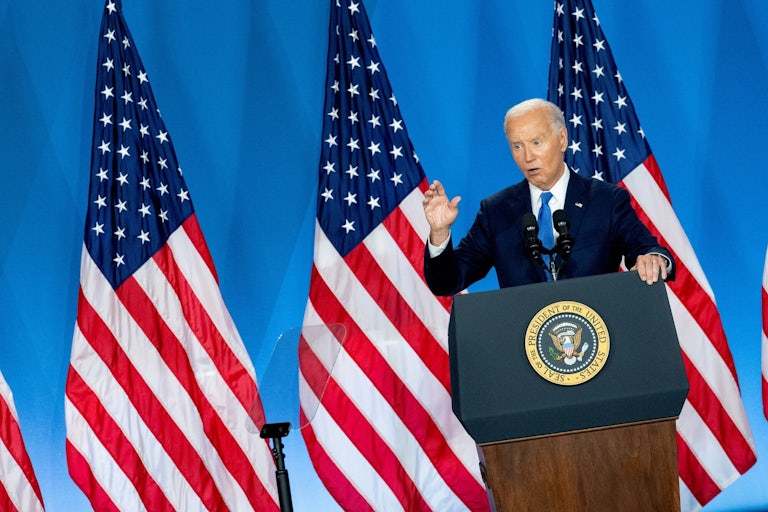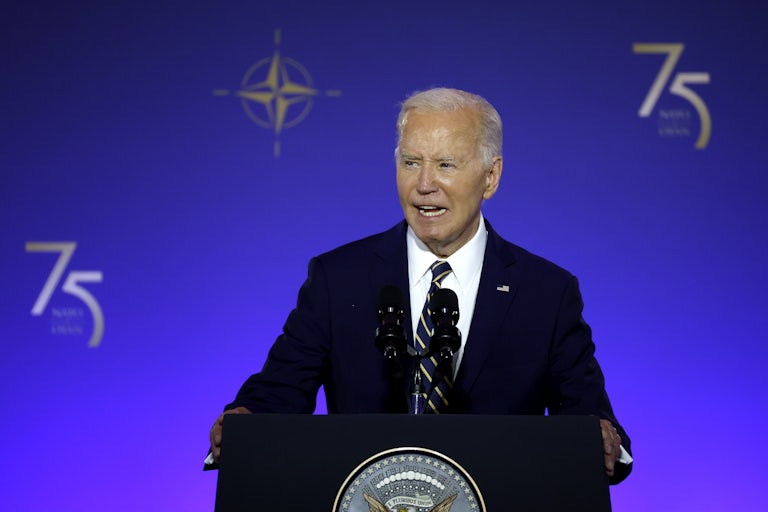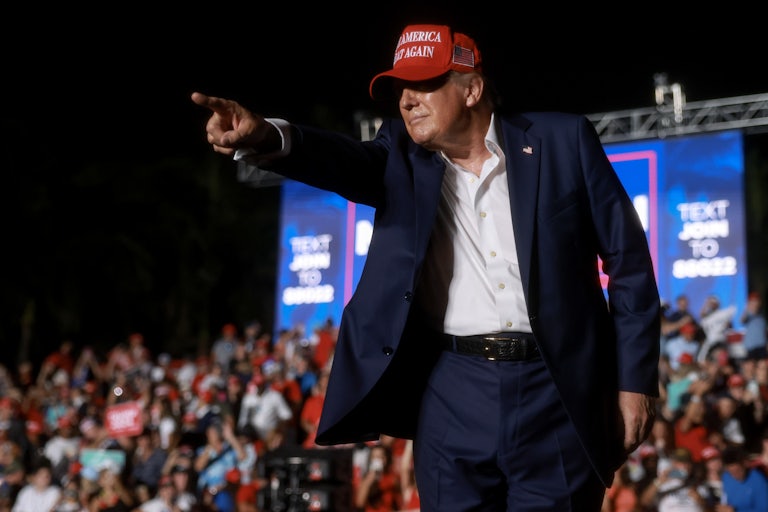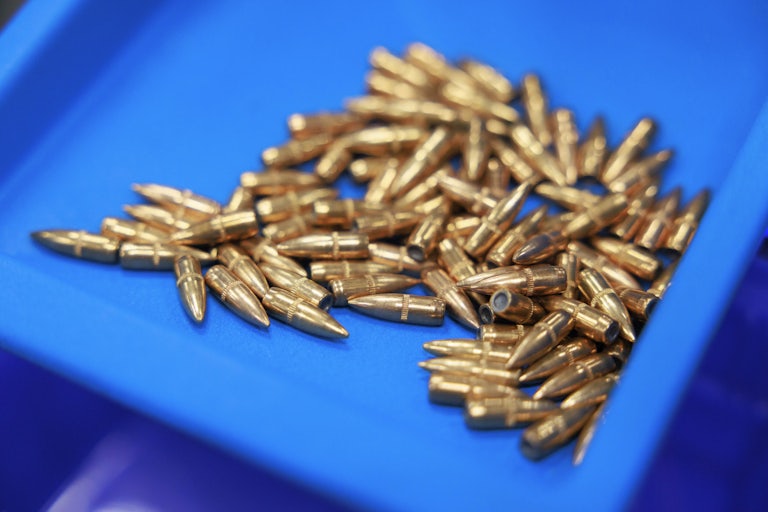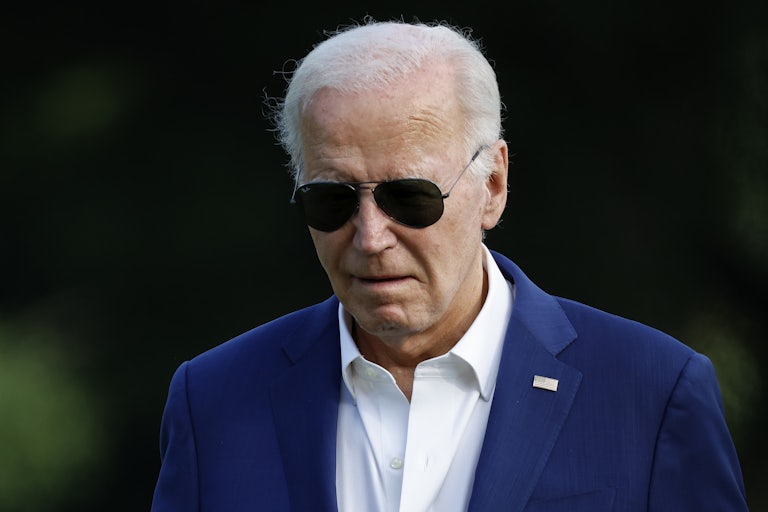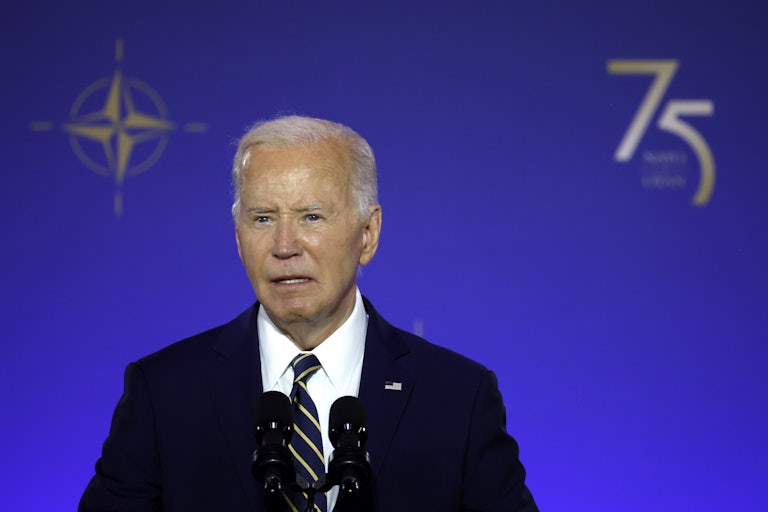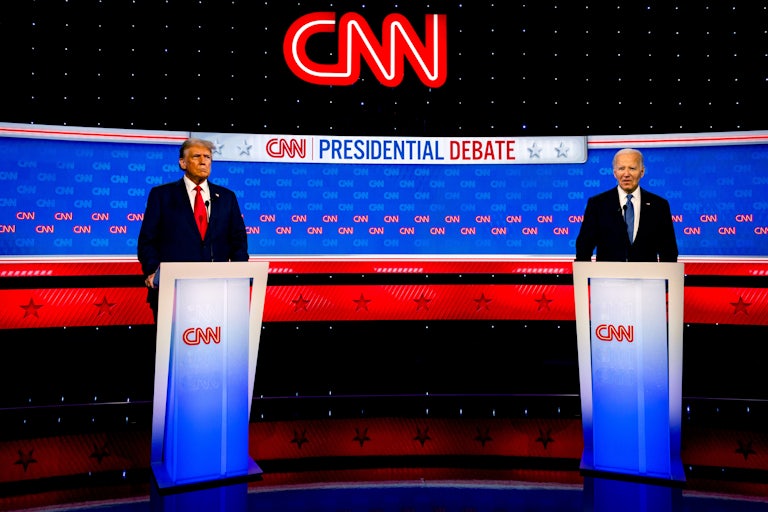Trump Asks Judge to Toss His Entire Conviction Thanks to Supreme Court
Donald Trump is using the Supreme Court’s immunity ruling every way he can.
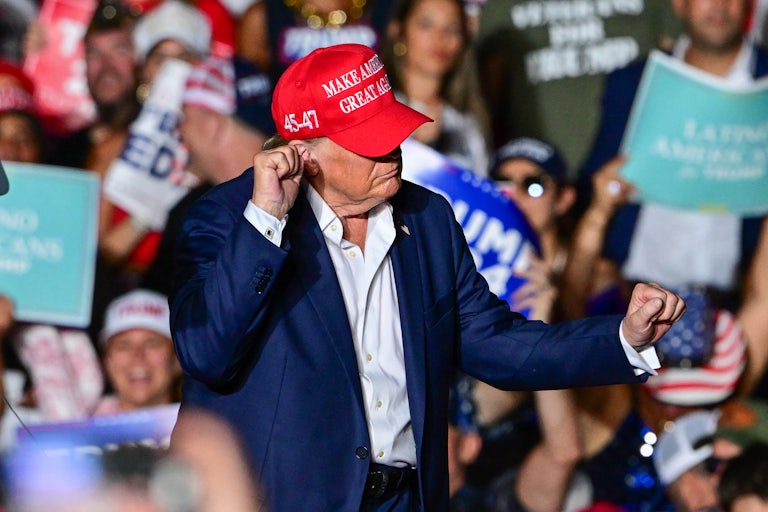
In his latest desperate move to avoid being held to account, Donald Trump is arguing that evidence used to convict him for setting up hush money payments ahead of the 2016 election should be dismissed and his 34-count felony conviction should be vacated based on the Supreme Court’s recent ruling that significantly expanded presidential immunity.
“Because of the implications for the institution of the Presidency, the use of official-acts evidence was a structural error under the federal Constitution that tainted the District Attorney’s grand jury proceedings as well as the trial,” defense lawyers Todd Blanche and Emil Bove wrote in a motion filed on Thursday. “The jury’s verdicts must be vacated.”
The motion was filed on Thursday, the same day Trump was initially scheduled to be sentenced for his felony convictions. Trump’s lawyers pointed to two pieces of evidence—Hope Hicks’s testimony of conversations she had with Trump while he was in office and posts he made on Twitter while he was president—arguing both constituted official actions. The Supreme Court’s ruling doesn’t entirely define what constitutes an official action, but in his lawsuit that came before the Supreme Court, Trump had argued for absolute immunity on the basis that anything a president does is inherently an official act. It’s unclear if the Supreme Court’s ruling is retroactively applicable or if it applies to evidence brought in state-level cases, as it focused on the federal case brought by special counsel Jack Smith in relation to Trump’s fake electors scheme. While some evidence in Trump’s hush-money trial occurred during his presidency, the trial focused on actions Trump took when he was still a candidate, not president.
Whether removing Hicks’s testimony and Trump’s Twitter posts will be discounted as evidence, and whether that change is enough to throw the case is up to the judge. Last week, Judge Juan Merchan agreed to delay Trump’s sentencing to September 18 to review the Supreme Court’s ruling and its impact on the case.
